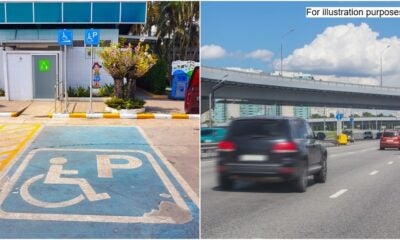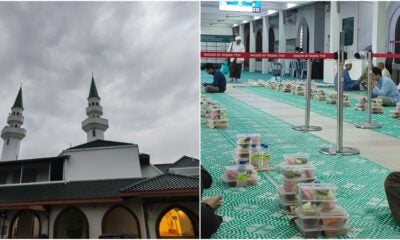It has been more than a month since the Movement Control Order (MCO) started on 18 March and all residents of Malaysia are ordered to stay at home. Employees have turned their homes into makeshift offices while students are tuning in to online classes.
Some might see this period of time as a good thing, with families being together and having plenty of time to rest and relax. However, what happens behind those closed doors are stories too many are afraid to tell. Trapped in their own homes, these silent sufferers are victims of domestic violence.
For these women, having their husband home is anything but comforting and this applies to little children as well. This is because the MCO has made violence at home more frequent and dangerous, but many women are finding it hard to reach out for help.
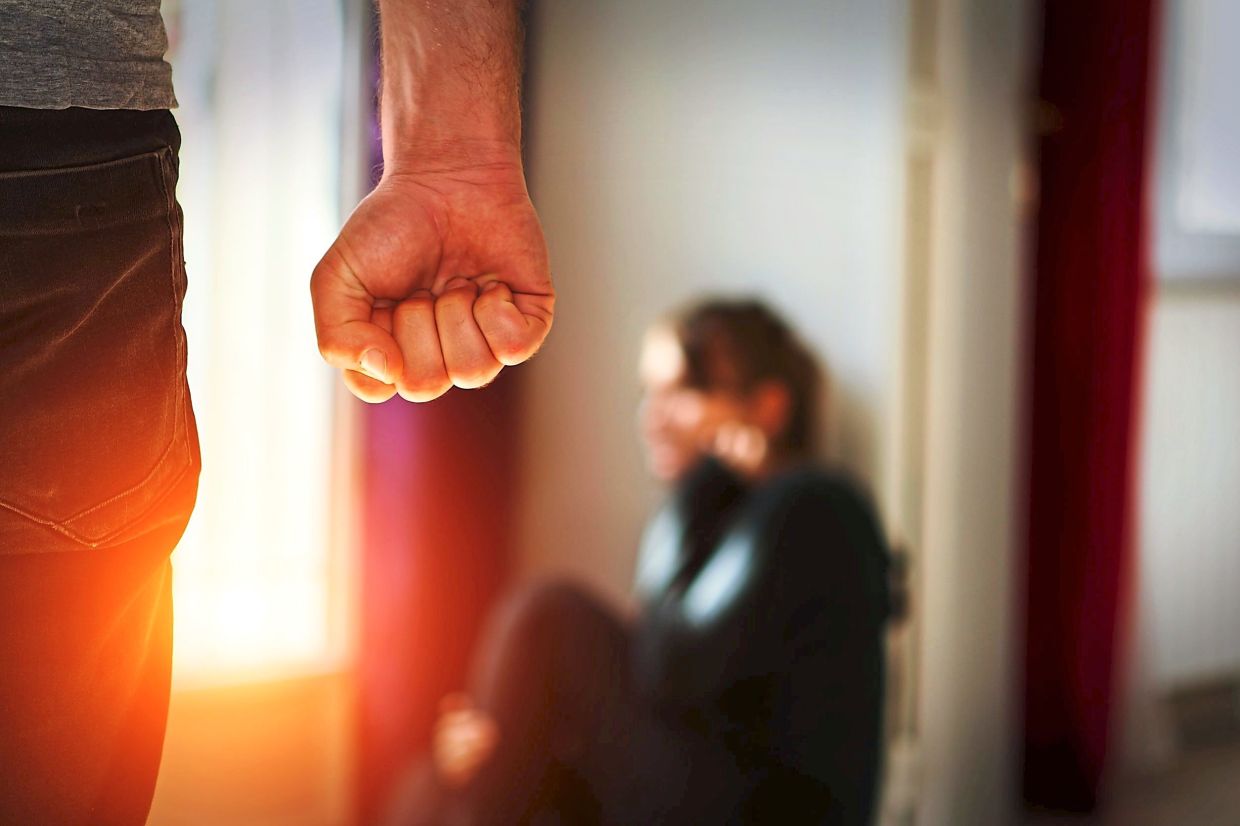
Domestic violence increased during MCO
We contacted the Women’s Aid Organisation (WAO), Malaysia’s first domestic violence shelter and now the largest service provider for domestic violence survivors in the country, and asked them to share with us the statistics of domestic violence happening in the country ever since the MCO was implemented.
Between February and March 2020, the WAO’s hotline has seen a 44.4% increase in calls and enquiries. They received 226 calls in January, 250 calls in February and 361 calls in March.
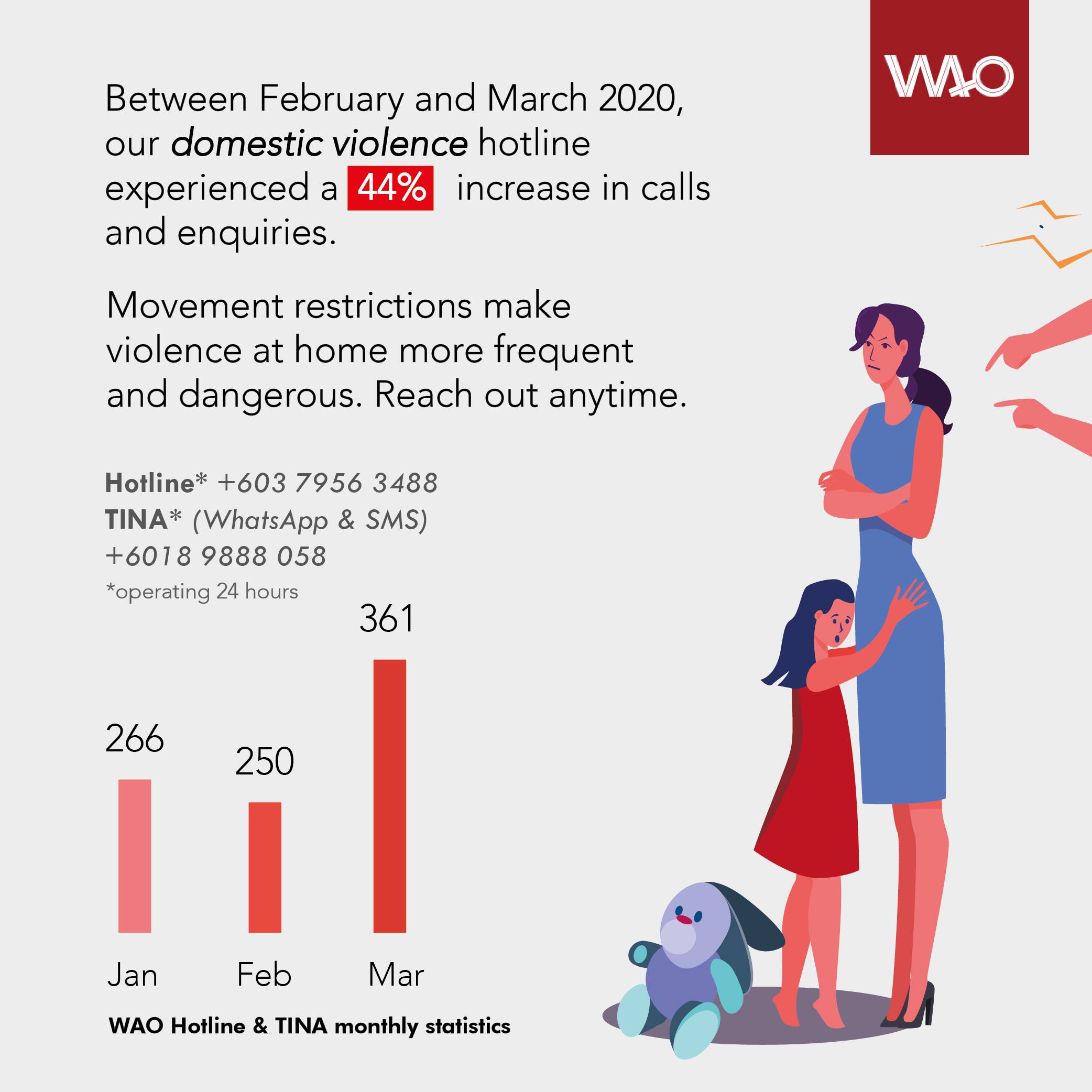
WAO Advocacy and communications officer, Tan Heang-Lee, said that these victims are now at a greater risk because they are trapped in the house all day with the abuser. Furthermore, it is even harder for them to reach out for help as the abuser may be monitoring their every move.
“Domestic violence is about maintaining power and control,” she said.
“And in this crisis, isolation and concerns over health and finances can further aggravate an abuser’s desire to exert power and control.”
The WAO also mentioned that the lack of shelters during the MCO has forced some domestic violence survivors to sleep in their cars and has since urged the government to provide victims with a safe place they can go to like hotels or hostels, or by collaborating with the private sector, reported MalaysiaKini.
Here are the different tactics abusers use to establish power and control:

Domestic violence is shown in a behavioural pattern and abusers often use different tactics to establish power and control.
Using intimidation – Abusers make their victims afraid by using looks, gestures and violent actions like smashing things or displaying weapons.
Using emotional abuse – Abusers make their victims feel bad about themselves and turn the situation around on them to make them feel guilty while playing mind games with them.
Using isolation – Abusers are control freaks and they will do anything to stop their victims from meeting other people, limiting their outside activity and using jealousy to justify their actions.
Using male privilege – Abusers treat their victims like a servant and disallow them from making any big decisions.
Using economic abuse – Abusers prevent their victims from getting a job and force their victims to ask for money. They take their victims money and block access to their family income.
Denying and blaming – Abusers make light of their abuse and disregard their victims’ concerns. They deny their actions and blame their victims for being the cause of their abusive actions.
These are just some of the tactics that abusers use to maintain power and control over their victims among many others.
The cycle of abuse: Why victims find it hard to escape
The reason why victims find it hard to escape the clutches of their abusers is that domestic violence often happens in cycles. Abusers would threaten their victims with violence, inflict abuse on them and apologise and promise to change, before starting the cycle again.
According to WAO, the cycle of abuse includes four phases: (1) Tensions building, (2) Incident, (3) Reconciliation and (4) Calm. This cycle is very clearly explained in this diagram:
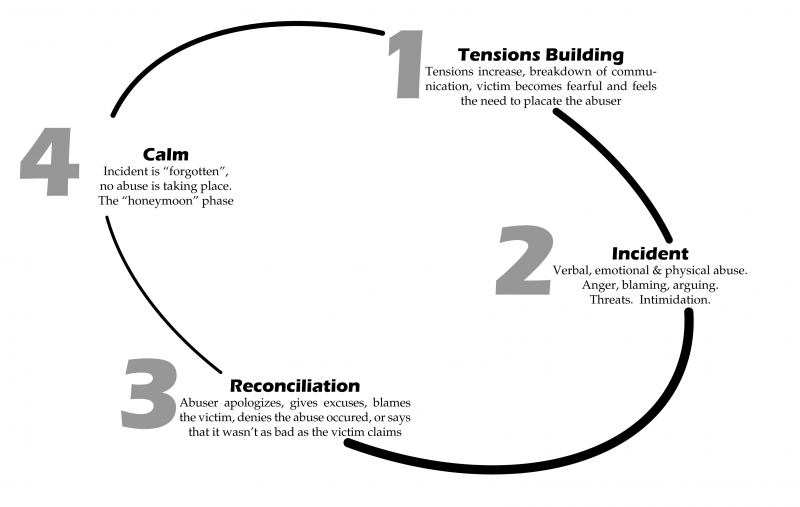
Mix of violent and ‘honeymoon’ phase confuses the victims
As the cycle shows, abusers may not be actively violent all the time. This is because there is a mix of both the violent phase and the “honeymoon” phase which makes abuse confusing and hard to break away from.
It is a tactic for abusers to maintain power and control and those who recognise the signs of domestic violence should break the cycle and reach out for help.
Domestic violence is a serious issue that Malaysian women are facing today, and more so during the MCO. If you know of someone who has a history of being a victim of abuse, call for help. Abusers should not get away with their cruel acts!
You can contact WAO at anytime of the day:
- Hotline: +603 7956 3488
- SMS/WhatsApp TINA: +6018 988 8058
Or you can reach out to KPWKM:
- Talian Kasih: 15999
- Police WhatsApp: 019-2615999.
Also read: Malaysian Ministry Say Women Should Use Doraemon Voice to Ask Husband For Help For a Peaceful Home






































